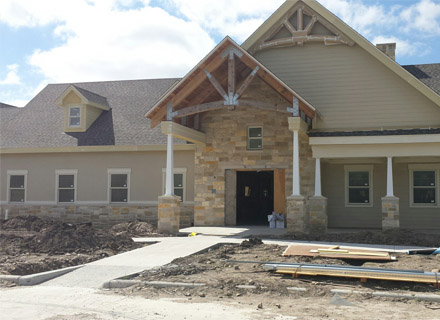The Hospice of South Texas is located in a rural community, and many members of the board were concerned about whether or not bringing in an outside consulting firm to manage their capital campaign was the best route. Would they justify the expense – would we recover the amount spent by hiring consultants? How would members of their community respond to an outsider requesting large pledge amounts? Would our process be effective for them?
Renderings of the planned inpatient facility shared during the capital campaign.
While many aspects of our traditional campaign approach were effective, others had to be adapted to meet the communities’ unique challenges. For instance, due to the large service area, the campaign had a twelve-person leadership team. Unusually large for many campaigns, here it allowed members of the leadership team to focus on identifying a prospect pool and coordinate efforts in a more manageable area.
We also used this localized approach when educating the community about the expansion plans. Instead of having a few large community events, smaller, more intimate gatherings were planned. This was a more effective way to garner interest and support of the campaign throughout the rural community.
Another “traditional” campaign activity that we quickly realized would not work on this campaign was the evaluations process. Typically, Convergent’s campaign director works with the leadership committee to determine the correct pledge amount to request at each solicitation. We quickly realized that in this case, we were able to secure larger pledges for HoST by NOT asking for a specific amount, instead providing potential funders with a list of suggested pledge amounts, naming opportunities, etc., as well as giving them insights on what others had already committed. By customizing and adapting our approach to better fit the communities’ needs, we were able to reach the campaign’s initial funding goal on schedule.


